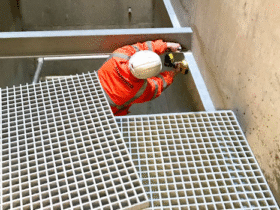In recent years, eco-conscious living has gained momentum, leading homeowners to seek sustainable alternatives in home improvement. One such solution that stands out is Wood Plastic Composite (WPC) decking. This innovative material combines the aesthetics of wood with the durability of plastic, making it an ideal choice for those looking to enhance their outdoor spaces sustainably. With its low maintenance requirements and long lifespan, WPC decking not only beautifies homes but also contributes to a greener environment.
In this guide post, we will explore the numerous benefits of WPC composite decking, why it’s a smart investment for eco-friendly homeowners, and answer some frequently asked questions.
What is WPC Composite Decking?
WPC composite decking is a blend of wood fibers and recycled plastic, creating a product that resembles traditional wood but offers significantly improved performance. Unlike conventional wooden decking that can warp, splinter, or rot, WPC decking is engineered to withstand harsh weather conditions, making it suitable for various climates. The result is a stunning, durable surface that requires minimal upkeep, allowing homeowners to enjoy their outdoor spaces without constant maintenance.
For those considering this option, it’s essential to research leading composite decking companies. These manufacturers provide high-quality WPC products designed to meet diverse aesthetic and functional needs.
Environmental Benefits of WPC Composite Decking
1. Sustainable Materials
One of the primary advantages of WPC decking is its environmentally friendly composition. The materials used in WPC products are often sourced from recycled wood and plastic, significantly reducing the demand for virgin materials. This approach helps divert waste from landfills and minimizes the ecological footprint of manufacturing processes.
2. Reduced Deforestation
By opting for WPC decking, homeowners contribute to the reduction of deforestation. Traditional wood decking requires cutting down trees, which impacts biodiversity and contributes to climate change. In contrast, WPC decking utilizes recycled materials, helping preserve forests and promote sustainable forestry practices.
3. Lower Carbon Footprint
The production of WPC decking typically involves lower energy consumption compared to traditional wood decking. This reduction in energy use correlates with a smaller carbon footprint, making WPC an environmentally responsible choice for homeowners.
Durability and Low Maintenance
1. Long Lifespan
WPC decking is designed to last for decades, often outliving traditional wood decking. With a lifespan of over 25 years, homeowners can enjoy their outdoor spaces without the worry of frequent replacements.
2. Minimal Upkeep
Unlike wood, which requires regular staining, sealing, and repainting, WPC decking is low maintenance. A simple wash with soap and water is usually sufficient to keep it looking great. This ease of maintenance not only saves time but also reduces the need for harsh chemicals that can harm the environment.
Aesthetic Versatility
1. Variety of Styles and Colors
WPC composite decking is available in various styles and colors, allowing homeowners to choose options that fit their aesthetic preferences. Whether you prefer a natural wood grain look or a contemporary finish, there’s a WPC decking product to match your vision.
2. Customization Options
Many composite decking companies offer customization options, enabling homeowners to select specific dimensions, textures, and finishes that suit their unique design needs. This flexibility enhances the overall appeal of outdoor spaces, making them more inviting and enjoyable.
Cost-Effectiveness
1. Long-Term Savings
While the initial investment in WPC decking may be higher than traditional wood, the long-term savings are significant. Homeowners benefit from reduced maintenance costs, fewer replacements, and lower energy consumption. Over time, these savings can outweigh the upfront costs, making WPC a smart financial choice.
2. Increased Property Value
Investing in WPC decking can enhance the value of a home. A well-maintained outdoor space is appealing to potential buyers, and the durability of WPC decking means that it will continue to look great for years, further boosting property value.
FAQs About WPC Composite Decking
Is WPC decking eco-friendly?
Yes, WPC decking is eco-friendly as it is made from recycled materials and helps reduce deforestation and waste.
How long does WPC decking last?
WPC decking can last over 25 years with proper care, making it a durable choice for outdoor spaces.
Does WPC decking require maintenance?
WPC decking requires minimal maintenance. Regular cleaning with soap and water is usually sufficient to keep it in good condition.
Can WPC decking be customized?
Yes, many manufacturers offer customization options for colors, textures, and sizes to meet specific design preferences.
How does WPC decking compare to traditional wood?
WPC decking is more durable, resistant to weather and insects, and requires less maintenance compared to traditional wood decking.
Conclusion
WPC composite decking is an excellent choice for eco-friendly homeowners looking to enhance their outdoor spaces sustainably. With its combination of recycled materials, low maintenance requirements, and aesthetic versatility, it aligns perfectly with the values of those committed to preserving the environment. As you plan your next home improvement project, consider WPC decking for a beautiful, durable, and eco-conscious investment. For more information on quality WPC products, explore what leading composite decking companies have to offer and make the smart choice for your home.












Leave a Reply